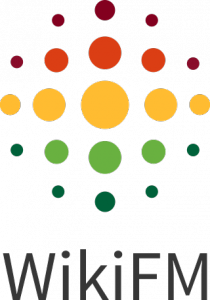Announcing WikiFM
Saturday, July 25th, 2015Announcing WikiFM!
Earlier today I gave a talk at Akademy 2015 about WikiFM. Videos of the talk should shortly become available. Based on the feedback that I have received during and after the talk, I have written a short resume of the points which raised more interest. They are aimed at the general KDE developer community, who doesn’t seem completely aware of the project and its scope.
You can find my slides here (without some SVG images).
What is WikiFM?
WikiFM is a KDE project which aims to bring free and open knowledge to the world, in the form of textbooks and course notes. It aims to train students, researchers and continuous learner, with manuals and content ranging from basic calculus to “Designing with QML”. We want to revolutionize the way higher education is created and delivered.
What does it offer more than $randomproject?
The union of these three key elements: students, collaboration in the open and technology. This has proven to be invaluable to create massive and high quality content.
All other projects usually feature just two of these elements, or concentrate on other material (e.g. video).
Additionally, we have virtual machines instantiatable on the fly on which you can start to develop immediately: check out http://en.wikifm.org/Special:DockerAccess (for logged-in users). By opening that link we istantiate a machine in the blink of an eye, with all the software you need already pre-installed. We support compositing and OpenGL. Your home directory is persistent among reboots and you always get a friendly hacking environment. Try it out yourself to properly appreciate it. 😉
Is it already used somewhere? Do you have some success stories?
The project started in Italy for personal usage. In spite of this, in just a few months we got national visibility and thousands of extemely high quality pages written. Students from other universities started to use the website and in spite of a content not planned for dissemination we get around 200 unique users/day.
In addition to this, the High Energy Physics Software Foundation (a scientifical group created among key people in istitutions such as CERN, Fermilab, Princeton University, Stanford Linear Accelerator, …) has decided to use WikiFM for their official training.
Moreover, we have been invited at CERN, Fermilab, and in the universities of Santiago (Chile) for delivering seminars about the project.
How can this help my KDE $existing_application if I am not a student?
This fits in the idea of the Evolving KDE project that started in this year’s Akademy.
Hosting developer documentation, together with a pre-built developer environment which can let library users and students test your techology and step up in the hacking within a few seconds is an invaluable feature. It is possible to demonstrate features or provide complicated tutorial showcases while giving the option of trying out the code immediately, without having to perform complicated procedures or waiting for big downloads to finish.
For existing developers it also provides a clean development environment, where testing of new application can happen without hassles.
Want to know more?
This is meant to be a brief list just to give you a taste of what we are doing.
I am at Akademy 2015 until the 29th. A strong encouragement: please come and speak to me in person! 🙂
I will be happy to answer any questions and eventually re-show you a shortened version of my talk.
Or, if you prefer, we are having a BoF on Monday at 11:30, in room 2.0a.
